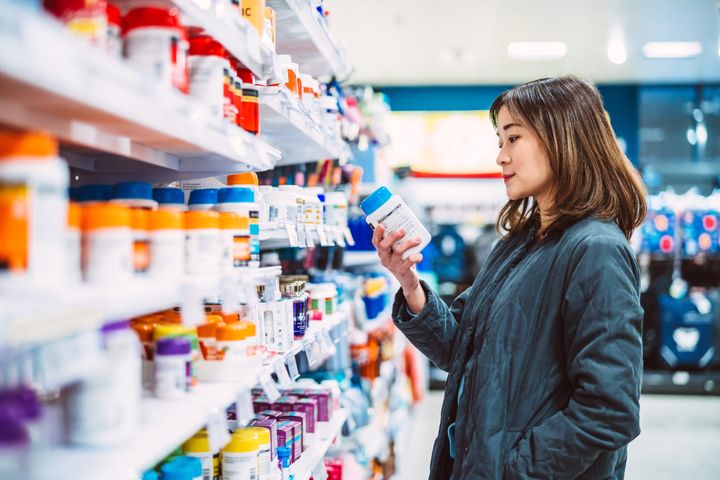So THAT IS the Difference Between Cheap and Expensive Vitamins
There are thousands of vitamin manufacturers in the United States. There are pills and capsules, liquid and powder. They come in boxes, bottles, pill packs and pouches. With so many options, it can feel impossible to know which brand to choose. What makes one better than the other?
The Food and Drug Administration does not review dietary supplements before they go on the market, meaning there is little oversight on their effectiveness and safety. It’s also unclear whether vitamins actually contain the ingredients they say they do – and a lot of them lessons they found that there were significant differences between what was inside the pill and what was listed on the packaging label.
As a result, there is no easy way to know which is the best. “You can’t look at the bottle and the price and say, ‘Okay, this is cheap because it’s cheap,'” he said. Mahtab Jafariprofessor of pharmaceutical sciences at the University of California, Irvine School of Pharmacy & Pharmaceutical Sciences.
That said, there are a few things to keep in mind when shopping for a good vitamin. Here’s what to think about:
What makes a vitamin expensive?
In general, there is likely to be little difference between an inexpensive vitamin and an expensive one, depending on Ibn Rafia medicinal chemist at Ohio University Hospital. Prices vary depending on what the supplement is, what its ingredients are, and what health condition it is designed to help with. Details such as good packaging can also work. (Who hasn’t been touched by a beautiful glass bottle before?)
“Like brand name and generic drugs, cheap and high quality vitamins advertise the same supplement,” said Rafi.
There are many scientists who do not know about supplementation. For example, it is not clear how different ingredients affect the way your body absorbs nutrients or how, exactly, natural ingredients differ from artificial ones. “We don’t really have lessons,” Jafari said.
That said, there are other factors that make the vitamin beneficial. For example, you want to choose products made from high quality ingredients and don’t have tons of fillers, like soybean oilor contaminants such as pesticides or heavy metals (think: mercury or lead).
Reliable manufacturers ― such as Theralogixfor example, or Nature Made ― it has information on their websites about how the ingredients are sourced and what their manufacturing process looks like.
It is also important that the vitamin has the right balance. A low dose may not produce the intended effect and a very high dose may lead to serious health problems.
“There have been many cases of drug-induced liver damage from supplements that contain too many vitamins or other ingredients that are harmful to the liver,” said Rafi.
However, at the end of the day, high price does not mean good. “Eating expensive food doesn’t mean it’s high quality,” Jafari said.

Images by Tang Ming Tung via Getty Images
How can you tell if a vitamin is of high quality?
It is important to consult a doctor, pharmacist or nutritionist before you start taking vitamins. There are few limitations and health conditions The supplement is recommended for, including pregnancyheart disease and diabetes. But people who are healthy and eat a balanced diet don’t need to take vitamins, Jafari said. A health care professional can determine whether you may benefit from taking a supplement and share a list of recommended products.
The best way to find out if a vitamin is correct: Check if it has been tested by a third party analysis company. “In my opinion, a high quality vitamin would be one that is tested by an independent third party for quality assurance and has minimal fillers,” said Rafi.
It is time-consuming and expensive for developers to have a third-party company ― such as US Pharmacopoeia (USP), National Sanitation Foundation (NSF) or ConsumerLab.com ― conduct testing and ensure that products contain the ingredients and values listed on the packaging label.
“A nutritional supplement company with a million dollar a year revenue, it’s really the least they can do. It shows consumers that they care about quality,” said Jafari.
So, look for the USP or NSP certification badge on the packaging label. Jafari also recommends checking the FDA’s website for them if the manufacturer has received a letter or legal order. If so, it’s probably wise to choose another product.
Finally, do your own research. Dig into the scientific studies on your favorite nutrients, check the manufacturer’s website, and, when in doubt, ask a medical professional to measure it. There is a lot of noise in the world of supplements, but if you do your due diligence, you can find products that have been tested rigorously and are widely trusted.
#Difference #Cheap #Expensive #Vitamins
